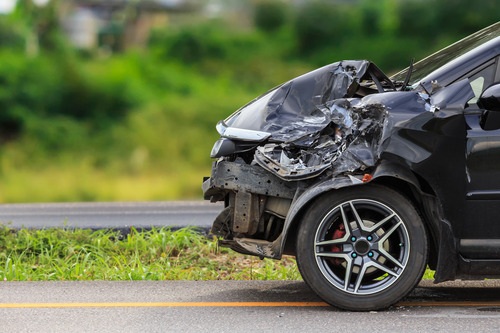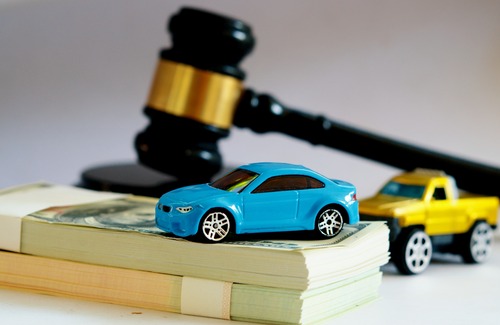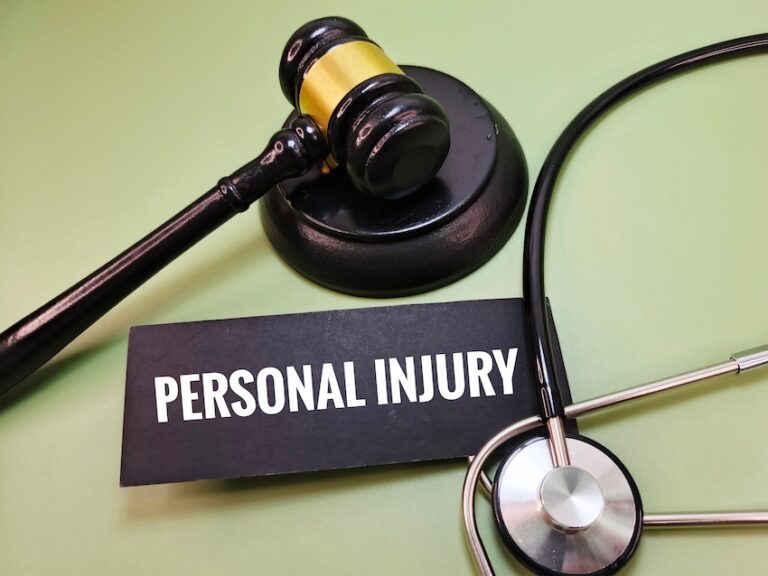A serious car accident can lead to more than just physical injuries—it can cause major financial losses, emotional distress, and long-term changes to daily life. If another driver was at fault, Georgia law gives you the right to pursue compensation for your losses. Understanding the types of car accident damages you may be eligible to recover is key to building a strong claim. Whether you’re dealing with medical bills, lost income, pain and suffering, or the wrongful death of a loved one, knowing what the law allows can help you make informed decisions.
In this blog, you’ll learn about the types of car accident damages available under Georgia law and how working with an experienced Atlanta car accident lawyer can help you recover the full compensation you deserve.
The Legal Basis for Recovering Car Accident Damages in Georgia
Car accident victims in Georgia must meet specific legal requirements to recover damages from the at-fault party.
Georgia Is an At-Fault State
Georgia uses an at-fault system for car accident claims. The driver who causes the accident is legally responsible for the resulting damages. This includes covering costs through their insurance coverage.
Negligence Determines Liability
Negligence is the legal standard for liability in Georgia. To hold another driver accountable, the injured party must show that the other driver breached a duty of care and caused the accident. Georgia law, under O.C.G.A. § 51-1-6, allows compensation when someone suffers a loss due to another’s failure to uphold a legal duty.
Modified Comparative Fault Rule
Under O.C.G.A. § 51-12-33, Georgia follows a modified comparative fault rule. An injured driver can recover compensation if they are less than 50% at fault. However, their damages are reduced based on their percentage of fault.
Types of Recoverable Damages
Victims of motor vehicle crashes in Georgia may be eligible to recover:
- Economic damages: Medical bills, property damage, lost wages, and reduced earning capacity
- Non-economic damages: Pain and suffering, emotional distress, and reduced quality of life
- Punitive damages: These are available in limited cases involving reckless or intentional conduct, such as drunk driving
The Role of Insurance Companies
The other driver’s insurance company usually handles the payout for damages. These companies often aim to reduce or deny claims. A car accident lawyer can challenge low offers and seek fair compensation for the injured party.
Legal Help Makes a Difference
An experienced Atlanta car accident attorney can gather evidence, calculate damages, and communicate with insurers. Legal support increases the chances of a fair settlement and protects the rights of car accident victims.
Economic Damages: Tangible Financial Losses
Car accident victims in Georgia can recover economic damages to cover financial losses directly caused by the crash.
Medical Expenses
Medical expenses are a major part of car accident damages. These include emergency care, hospital stays, surgery, physical therapy, prescription medication, and follow-up visits. Victims should keep all medical bills and medical records to prove the cost of treatment. Future medical costs can also be included if the injuries require ongoing care.
Lost Wages and Earning Capacity
Injured drivers can claim lost wages if the accident forced them to miss work. If the injury affects long-term employment or the ability to return to the same job, victims may also seek compensation for reduced earning capacity. Pay stubs, tax returns, and employer statements help support this part of a car accident claim.
Property Damage
Property damage refers to the cost to repair or replace the vehicle and any personal items inside it. Photos of the accident scene, repair estimates, and insurance assessments help determine the value. In Georgia, drivers can claim this amount as part of their car accident compensation.
Out-of-Pocket Costs
Victims can also recover other out-of-pocket costs, such as rental car fees, transportation to medical appointments, or home modifications related to accident injuries. Keeping receipts helps prove these expenses.
Non-Economic Damages: Pain, Suffering, and Emotional Impact
Non-economic damages cover the physical and emotional effects of a car accident that do not have a fixed dollar value.
Pain and Suffering
Pain and suffering damages account for physical pain caused by accident injuries. This includes both immediate pain and long-term discomfort from conditions like spinal cord injuries or chronic back problems. These damages may increase if the victim faces permanent disability or reduced quality of life.
Emotional Distress
Car accident victims often experience emotional distress, including anxiety, depression, or post-traumatic stress disorder. This mental impact can interfere with sleep, work, and relationships. Psychological evaluations, medical treatment records, and personal testimony can help prove the emotional toll of the crash.
Loss of Enjoyment of Life
Injured individuals may no longer be able to participate in activities they once enjoyed. This loss can be physical or emotional. If the injury affects hobbies, family time, or independence, the law allows victims to seek compensation.
Loss of Consortium
A spouse may also claim damages for loss of companionship or support due to serious injuries. This type of damage is common in personal injury lawsuits where the injured party’s condition affects the relationship.
Under O.C.G.A. § 51-12-6, Georgia law permits non-economic damages even when no exact dollar figure can be assigned. Proving these damages often requires more than receipts. A skilled personal injury attorney can help build a case using witness statements, medical documentation, and expert testimony.
Punitive Damages in Georgia Car Accident Cases
Punitive damages are awarded in certain Georgia car accident cases to punish the at-fault driver for extreme misconduct and to deter similar actions.
Purpose of Punitive Damages
Unlike economic or non-economic damages, punitive damages are not meant to compensate the victim. They are used to penalize the driver responsible when their behavior shows willful misconduct, malice, or reckless disregard for others’ safety. Drunk driving, hit-and-run accidents, and racing on public roads may justify this type of claim.
Legal Standard in Georgia
Under O.C.G.A. § 51-12-5.1, punitive damages are allowed only if the injured party proves, with clear and convincing evidence, that the at-fault driver acted with intent to harm or in a highly reckless way. The burden of proof is higher than in most personal injury cases.
Cap on Punitive Damages
Georgia limits punitive damages in car accident cases to $250,000 in most situations. However, there is no cap when the driver was under the influence of alcohol or drugs at the time of the crash. This exception is especially relevant in drunk driving accidents, where courts may award higher amounts to punish the conduct.
When to Seek Punitive Damages
Not all car accident claims qualify for punitive damages. These claims are typically pursued in cases involving serious misconduct. An experienced car accident attorney can review the details and advise if this type of compensation applies.
Wrongful Death Damages
When a car accident results in a fatality, the surviving family members may file a wrongful death lawsuit to recover damages under Georgia law.
Who Can File a Wrongful Death Claim
Under O.C.G.A. § 51-4-2, the right to file a wrongful death claim typically belongs to the deceased’s spouse, children, or parents. If no immediate family is available, the personal representative of the estate may bring the claim. These cases are separate from any criminal charges the at-fault party may face.
Types of Recoverable Damages
Wrongful death damages cover both economic and non-economic losses. Recoverable amounts include:
- Lost income the deceased would have earned over their lifetime
- Loss of care and companionship suffered by the family
- Funeral expenses and medical bills related to the final injury
- Emotional suffering of the surviving relatives
These damages reflect the full value of the life lost, measured from the perspective of the deceased.
Proving Liability in Fatal Car Accidents
The plaintiff must prove that the other driver’s negligence caused the fatal crash. This may include evidence of distracted driving, speeding, drunk driving, or failure to follow traffic laws. Police reports, witness statements, and expert testimony often support the claim.
Legal Support for Families
Wrongful death cases are emotionally and legally difficult. An experienced car accident attorney can help families recover compensation and handle the legal process while they focus on healing. Filing a strong claim helps protect financial stability and hold the responsible party accountable.
Contact an Experienced Atlanta Car Accident Attorney Today!
If you or someone you care about has been injured in a car accident, it’s important to take action quickly to protect your rights and secure the compensation you need. The insurance companies are not on your side, but our team at Ross Moore Law is. We have the experience, resources, and determination to hold the at-fault party accountable and pursue the maximum recovery for your medical bills, lost income, pain and suffering, and more.
Contact us at 404-445-8122 for a free claim review today!







